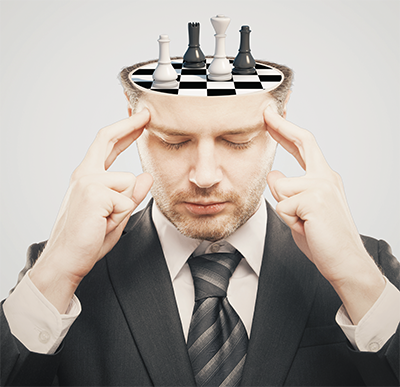
- Science
- March 25, 2022
- 10:47 am
Does Chess Make You Smarter?
Improving at chess requires focus, patience, determination, and a willingness to analyze your flaws and improve on them. There is some debate on whether chess is just a game or can actually make you smarter, and increase your IQ. While IQ scores are generally only a metric of how good you are at taking IQ tests, the question of whether chess can indeed strengthen critical thinking and analytical skills is a valid one. We’ll be exploring some evidence that demonstrates this may actually be the case.

There are many peer reviewed studies that demonstrate that playing chess does improve cognitive, memory, and math skills. In one such study from 2015 by SAGE shows a strong correlation between chess and math scores, and a higher improvement in math in the experimental group compared with the control group. These results suggest that teaching children chess, even in the short-term, can be used to increase their mathematical skills.
There are several studies on the effects of chess on critical thinking. Some demonstrate a strong correlation between critical thinking, concentration and playing chess regularly. The reasoning seems to be based on the notion that playing chess, particularly under tight time constraints, requires the player to think through multiple possibilities and threats very quickly.
What does this mean for you?
Playing chess well may not automatically make you a genius, but it can improve your ability to solve problems quickly under difficult circumstances.
Similar to why playing chess can improve your critical thinking and concentration, similar evidence suggests that your ability in chess may be strongly correlated to creative thinking. Whether this is a causation remains unclear, but the evidence is undeniable that being good at chess tends to make you better at creative thinking.
In the context of a game of chess, this makes sense. Chess provides you with multiple opportunities to try to think of a clever way to take down your opponent in a way they may not see coming, and also makes you put yourself in the mind of your opponent to try to deduce or infer what they are planning against you. This sort of thinking through opportunity and inventing ideas on the fly is at the core of a creative mindset.
In this same vein, playing chess can make you better at planning and generating ideas in general.
In one experiment, researchers compared the ability of expert chess players to remember and recall information to that of people with no chess-playing experience. They found that the chess players at a massive advantage in their ability to recall words they had heard than people who did not play chess.
In a 2019 study byPubMed, researchers demonstrated that you can reduce the risk of dementia and Alzheimer’s Disease by doing a multitude of activities, including chess. Doing any activity that requires regular critical thinking and creativity, like chess, can definitely have an effect on preventing such brain deteriorations. However, it can also act as a way for family, friends, and caretakers likely to notice if you do develop these issues. This is because when you start to experience symptoms of dementia, your ability in any creative and thought-provoking activity will show a decline. Making it possible for doctors to diagnose and treat you earlier and give you the opportunity for early treatments.
Counselors and therapists play chess with patients to make the environment more relaxing and increase their self-awareness.
Playing chess with a conselor or therapitsy is considered to be a type of creative therapy strategy. Chess allows you to see your reactions to stress and to challenges as they arise in the course of a game. This can also give insight to your conselor as to how you react to pressure and difficult situations.
Read also
How to become a Chess Grandmaster
The Sicilian Defense: A Comprehensive Overview
5 Beginner Mistakes to Avoid in Chess
Best Chess Software for PC [Top 5]
Best Chess Software for Mac [Top 5]
